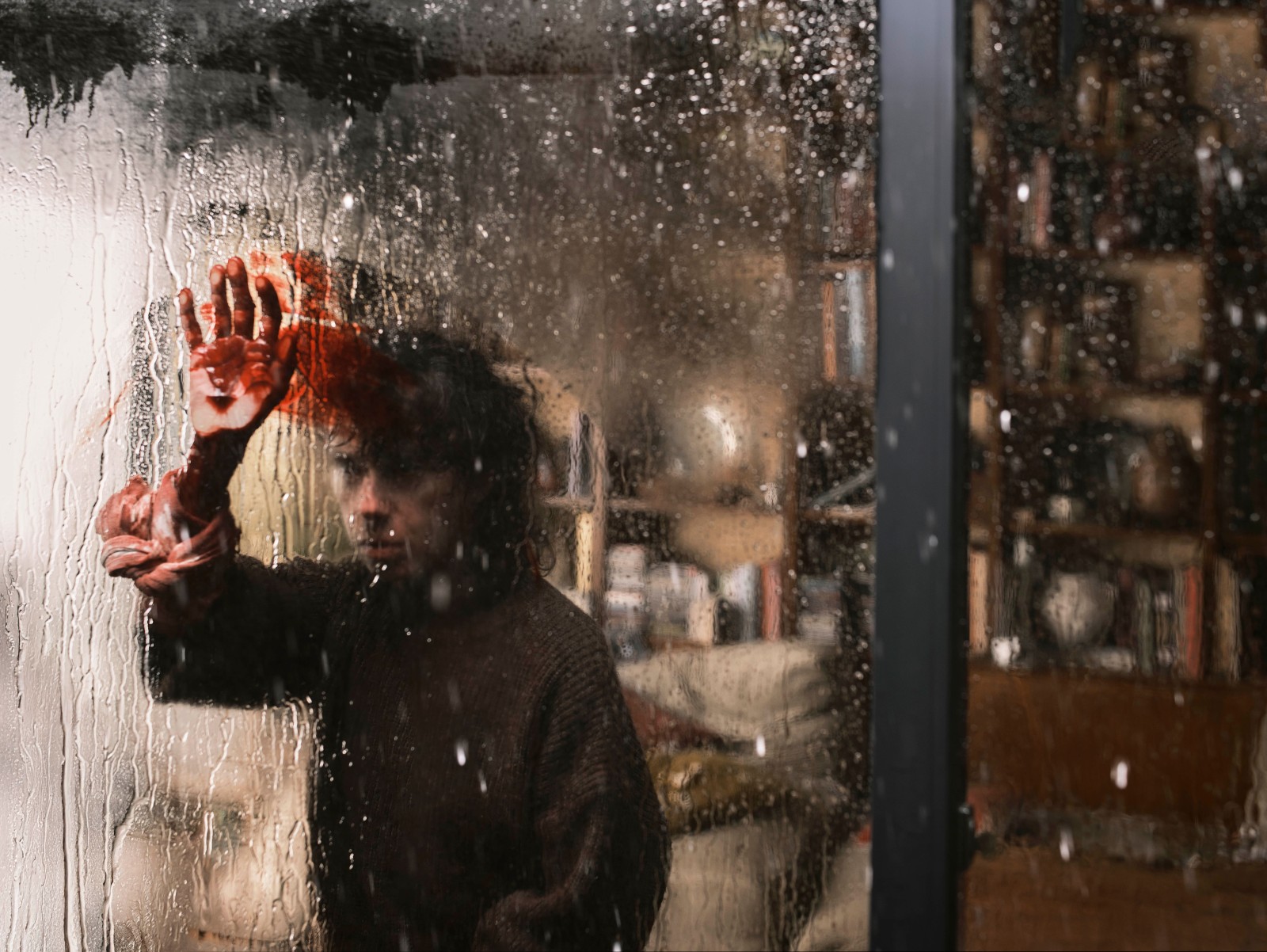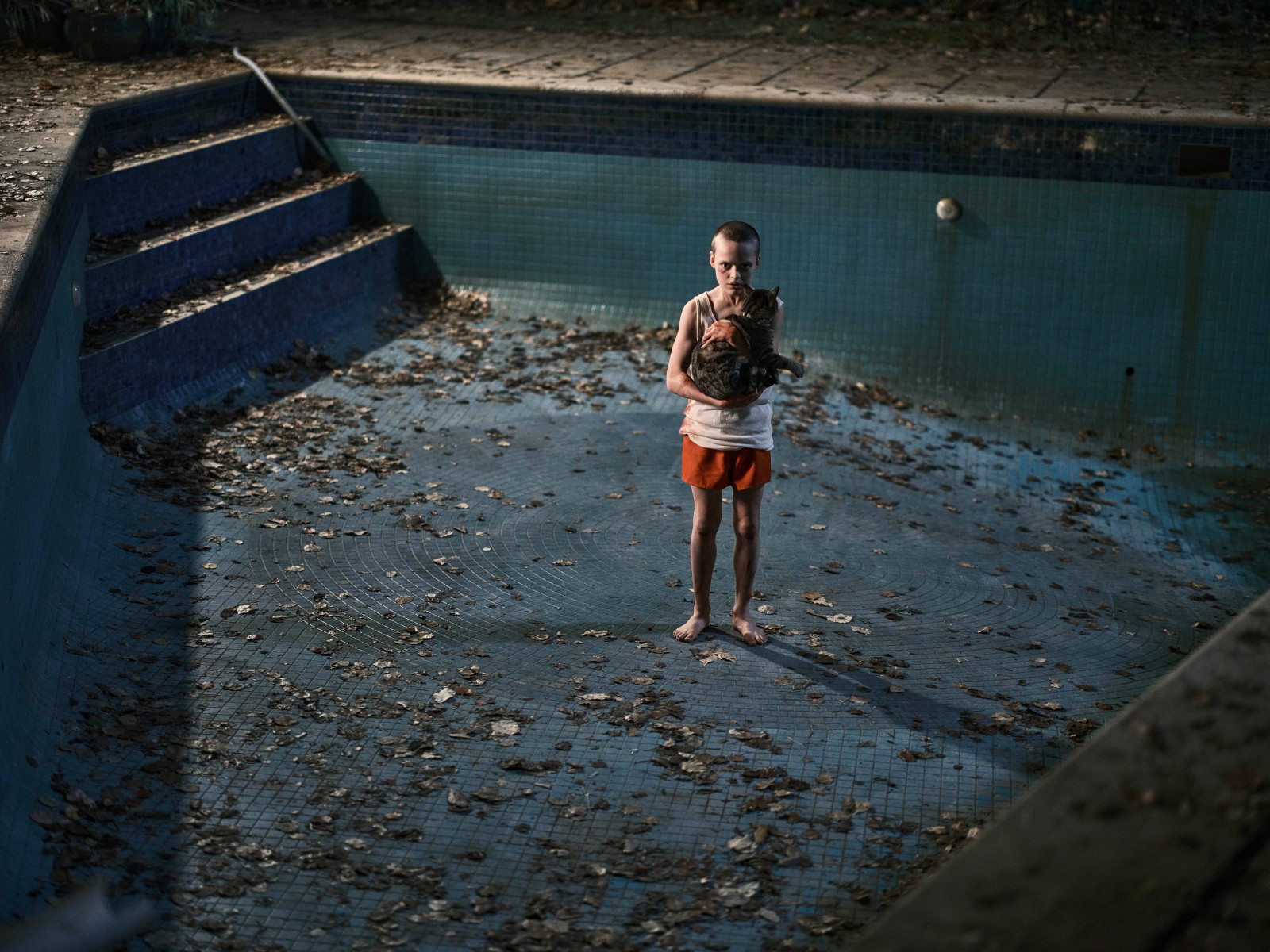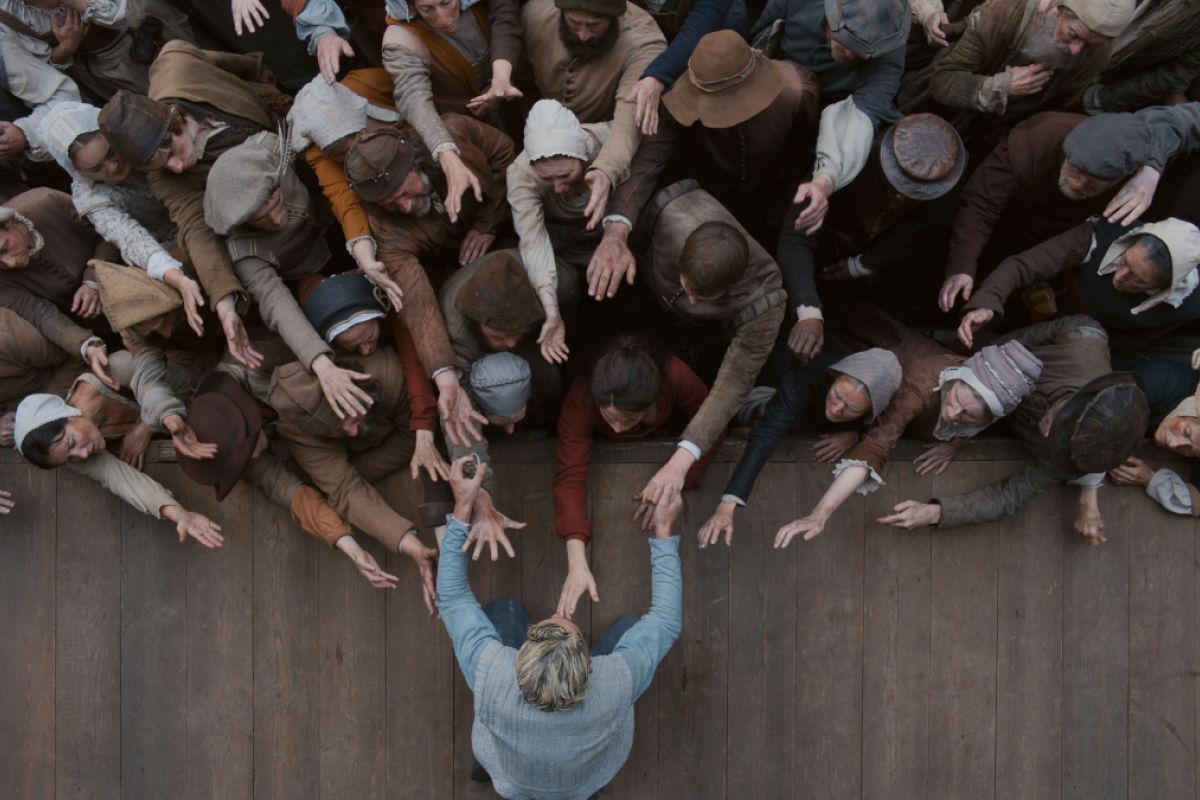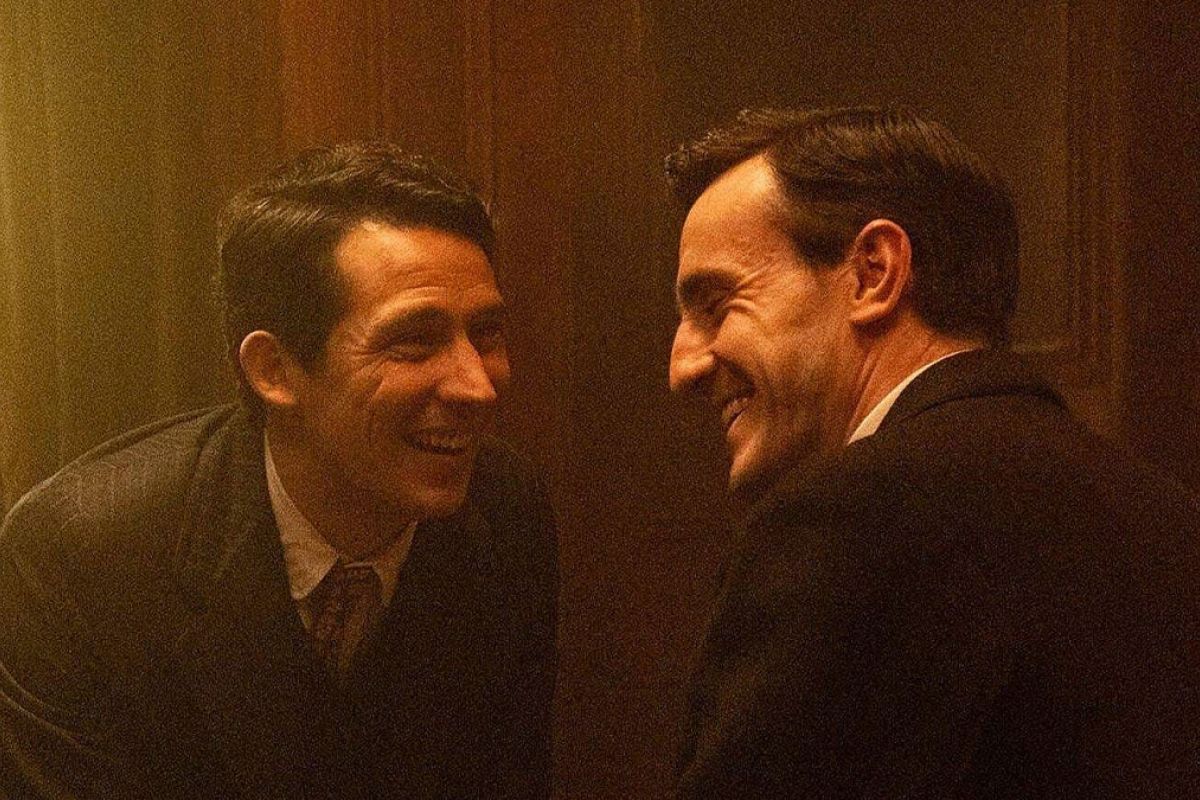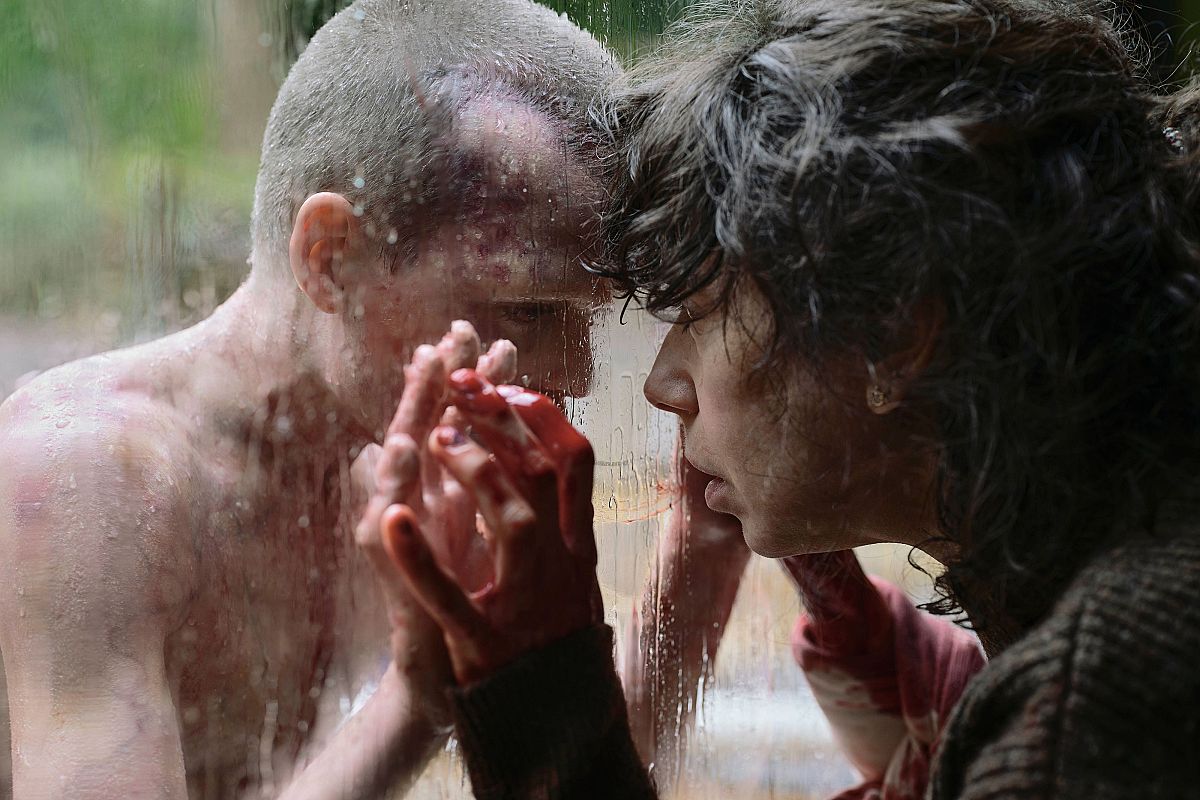
Aaron recommends Bring Her Back
The duo behind Talk to Me impress & terrify once again.
Aaron Cawood
The Philippou brothers entered the horror scene with a bang in 2022 with Talk to Me – an undeniably fresh and unapologetically bold take on the séance sub-genre complete with a killer cast and a spooky hand. Since then, to say I’ve been eagerly awaiting their next directorial outing is a bit of an understatement. The modern boom in horror movies has led to a lot of notable trends; mascot, splatter, dystopian, isn’t-the-real-killer-actually-AI. The list goes on. And while there are nuggets of gold in every sub-genre, the frequency of similar movies hitting the screens leads me into a bit of a horror-white-noise-brain-fog. But every so often, that fog is cleared by a film like Talk to Me. And now, again, three years later, by Bring Her Back.
Talk to Me and Bring Her Back both operate on similarly run-of-the-mill conceits. In Talk to Me’s case, the conceit is ‘we’ve got a spooky object that lets us talk to the dead.’ For Bring Her Back, it’s ‘orphaned children are rehomed with a very suspicious adult.’ Both of these conceits are well-trodden ground in film, with a thousand different versions of those stories having hit cinemas across decades. But in both cases, the Philippou brothers take what we understand about those devices and turn them on their head. In Talk to Me, as we watch party sequences where young people use seances as a recreational drug, chasing the high of possession and the virality of posting about it online, it feels like a whole new take on what classic horror tropes can mean to modern characters. So, after what felt like an immediate modern classic for the séance sub-genre, my anticipation for their next feature was high, but so too was my caution. With a debut like that, how on earth do you follow it up?
I’ll indulge myself first by touching on What Ever Happened To Baby Jane?, which is an absolute classic if you haven’t watched it. Critics have suggested that the 1962 thriller, starring Bette Davis and Joan Crawford, represented the birth of a sub-genre known as the ‘psycho-biddy’ film. It’s a somewhat clunky phrase to describe films which narratively centre on a ‘hag’ or older woman character who is, in some narrative sense, past her prime, or desirous of something from her past. In What Ever Happened To Baby Jane?, Jane’s descent into madness comes from her bitterness at losing her stardom. In Sunset Boulevard, Norma shares the same motivation. In Hereditary, Annie wants her daughter back. In Bring Her Back, this ‘psycho-biddy’ or ‘hagsploitation’ motivation is at the heart of the strange behaviour of Laura, harrowingly realised by Sally Hawkins. Often, movies drawing from this device are interested in matters of longing, loss and grief.
So, how do you follow up a film that reinvents a tropey sub-genre already well-known to your audience? You pick another tropey sub-genre (enter the psycho-biddy) and you do it again. I’ll spare basically every single detail about the plot of Bring Her Back because the vagueness of its trailers and the creepy anticipation it’s built up is part of the disorienting experience of watching it, but there are elements of it that are so joyous for horror fans that I will gush a bit. Sally Hawkins is astoundingly watchable, in the sense that her performance is so vulnerable and uncomfortable that you can’t drag your eyes from the screen. She’s backed by performances from exceptional young talent in Billy Barratt, Sora Wong and Jonah Wren Phillips, who are only 18, 14 and 12, respectively. There’s a phenomenon in horror about children in peril that turns up the volume on fear across the board – see, for example, the extended works of Stephen King, Poltergeist, and The Exorcist. And as far as Bring Her Back is concerned, boy oh boy, are those children in peril. Everything is much scarier when your human instinct to protect the innocent kicks in so, on that level, Bring Her Back is just f***ing terrifying.
It's probably worth noting that Bring Her Back is absolutely not for the faint of heart on a visual level, which lovers of Talk to Me may already be preempting. We live in the age of movies like Terrifier seeing cinematic releases (and box office success!) so conversations around gore, splatter and shock are more alive than ever but, if that is the sort of gore you’re looking for, you won’t find it here. As in Talk to Me, the Philippou brothers’ command of gore as a dramatic device is masterful all through Bring Her Back and, as the movie teeters upwards towards a vibrating and anxiety-inducing final act, you might just find yourself watching the film from behind your hands. It’s intentional, invasive, narrative gore that might make hardened horror fans think of Huesera: The Bone Woman, Train to Busan or Terrified (2017), and all of it speaks to the creative team’s reverence for the canon.
This is a horror film made by horror fans. It’s a love letter to the tropes and the classics, and it’s an emboldened push forward into new territory. I could spout a thousand clichés about this movie, but I’ll settle on one – this is a movie that follows you home. It’s horror-drama done so well, you’ll feel it crawling on your skin (and on your mind) for days after viewing. I didn’t think I’d have a top horror film for the year by July but, in all honesty, Bring Her Back is going to be very hard to beat. And, if like me, you loved Talk to Me and came out of it thinking ‘Is it even possible they can ever top that film?’, I’ll leave you with the short and simple answer; Yes. And they absolutely have.
Bring Her Back is showing daily at HPPH from Fri 01 Aug. You can book tickets here.


